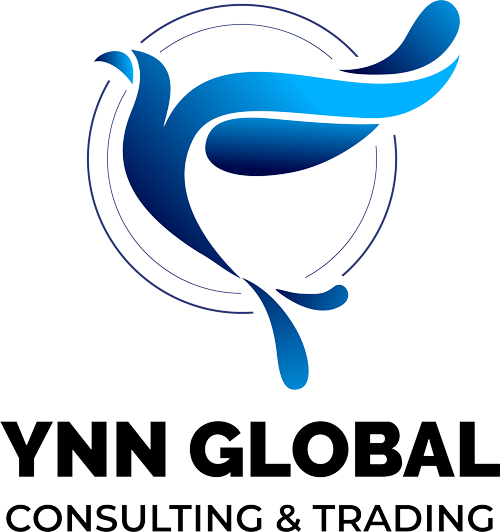The Smove car rental startup has become famous and easy to use even in a fairly expensive country with strict regulations like Singapore. With just a swipe of the prepaid card, anyone can get on a car parked on the road, start at the push of a button and drive away for $ 1 per ¼ hour.
As tech giants Uber and Grab expand across Southeast Asia, quickly and seemingly with no intention of stopping, Smove founder Tom Lokenvitz thinks he has found a way to leverage their success to bring achievements to yourself.
As a result, in 2015, he struck an agreement to supply cars to Uber drivers, attempting to sign long-term lease contracts to increase the number of cars. At the time, Grab and Uber were just getting into the game and they offered lots of strong discounts and subsidies to drivers in a fierce battle to gain market share in the region.
Covid-19 shock
For a while, Lokenvitz's bet was a success. In the 6 months after the deal with Uber was signed, Smove System was sublime. Their fleet has grown tenfold, staffing has tripled and at one point, they became the largest company in this field in Asia.
The company then received a shock: Uber suddenly withdrew from Southeast Asia in 2018, selling its regional business to Grab. In a moment of crisis when the partner collapsed, Smove was forced to restructure, renegotiate terms with suppliers, close offices in Australia and lay off employees in Singapore.
However, by the beginning of 2020, Lokenvitz felt that the situation had improved a bit, they began to add some expensive rental contracts and planned for the future, they aimed to expand the army and enter the market. new.
"In January and February we are returning to the track. The plan is to raise capital by the middle of 2020 with promising words: Look, we've got a profit, we can expand it again." .
But, when the cases of Covid-19 in Singapore peaked in May, the government introduced restrictive travel measures, and Smove's dream ended abruptly. Sales fell 85%, prompting management to consider selling off company assets and as a result, some of the parent company's patents were sold.
"We were like a sick patient who was showing signs of recovery. Then Covid-19 arrived, with very little money on hand, what can we do? We have no liquidity despite the government support. That's not enough to help us through this difficult period. "
Startups sick of Covid-19
It is worth mentioning, Smove is only one of many young companies that are "seriously" injured, "bleeding" cash in Southeast Asia. The Covid-19 epidemic has blown a cool breeze to regional startups, which for years had been pouring billions of dollars in investments from blood investors including Softbank's $ 100 billion fund.
Cracks in the aforementioned capital-raising model were exposed: Valuations plummeted, venture capital mobilization reached a 7-year low and unicorns considered profit as a vital survival goal to be forced to cut back. spending strongly and making difficult decisions.
In a situation like this, the attraction of Southeast Asia as a growth engine is gone. With the market growing at a rate of 2 digits each year, home to unicorns being targeted to become "horned unicorns" (valued at over $ 10 billion), the Covid-19 epidemic has actually Great challenge for investors. This could be a downturn for the emerging startup ecosystem in the region - at least until the pandemic is under control.
This could become a revolutionary moment, according to Chandra Firmanto - manager at Indogen Capital. "Investors are hardly interested in economic indicators. Many of them just say: This is a hot, huge industry because it is very, very easy to raise money."
Unicorns also can't avoid being "shed".
In Jakarta, the phenomenon of "bloodshed" has occurred in some unicorn startups (valued at over $ 1 billion).
In 2010, a small company called Gojek - taking its name from ojek - a two-wheel motorbike that helped people move through traffic congestion started as an information center with a group of employees.
In 2015, they developed an Uber-like application and became the country's first unicorn. In 2019, it surpassed $ 10 billion and is on its way to becoming a super-app, expanding to everything from car hire to digital payments and home cleaning. In some respects, they have expanded their ambition even bigger than that of their predecessor Uber.
Names like Google, Tencent and Facebook are the companies investing here.
"Whatever middle-class people in Indonesia and beyond want to trade, we want to focus it on a single application," co-founder Nadiem Makarin said in 2018.
However, at the end of June, the number of active users of the company suddenly decreased sharply, Gojek had to announce the dismissal of 9% of the work force.
Please send your question(s) by filling in this form. Our consulting team will quickly answer you via E-mail. Feel free to visit our office to get more details about our services.
Popular news
- Things to know about enterprise registration certificates in Vietnam
- Top 5 things to know about investment registration certificates
- Top reasons why businesses should hire an outside payroll service
- Benefits of using outsourced accounting services
- Advantages and disadvantages of outsourced accounting services
Popular tags
Food hygiene and safety License
Cosmetic, food registration
Trademark registration
M&A
Real Estate
Temporary Resident card for Foreigners in Vietnam
Work Permit for Foreigners in Vietnam
Visa for foreigners entry Vietnam
Transfer company capital from Vietnam to Foreign
Establish Vietnam Company
Establish Foreign Company
Vietnam Market Entry Services
Accounting Services
Visa - Work Permit - TRC
Business tax
Connect with us


